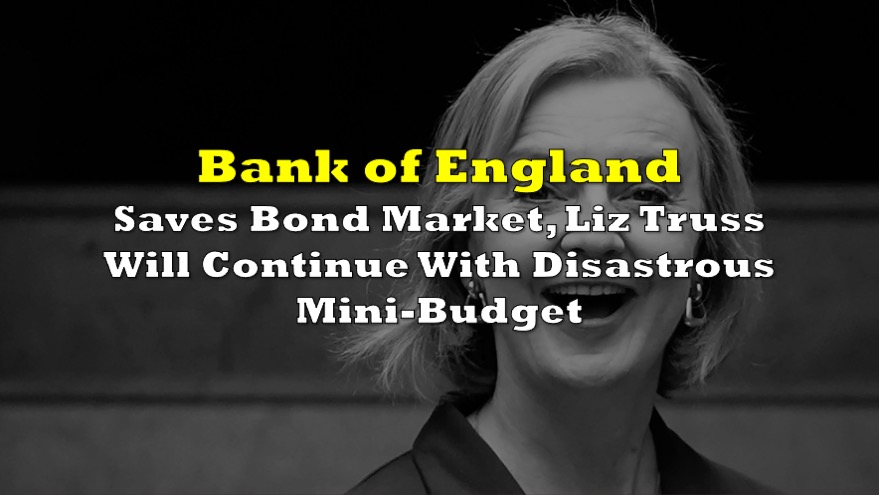The Bank of England was forced to intervene in UK financial markets once again, as the country’s bond market remains in chaos following Finance Minister Kwasi Kwarteng’s disastrous fiscal policy plan unveiled last month.
UK’s central bank on Tuesday announced it will expand its emergency government debt-buying scheme to now include inflation-linked gilts, in an effort to slow down pension funds’ “fire sales,” which are creating a “material risk to UK financial stability.” The additional bond-buying program will begin on October 11 and run through to October 14, marking the second time within a matter of days the central bank has had to expand its extraordinary monetary rescue package. On Monday, the Bank of England raised the limit of its daily gilt purchases to £10 billion, allocating £5 billion to conventional gilts and the remaining £5 billion to index-linked gilts.
“The beginning of this week has seen a further significant repricing of UK government debt, particularly index-linked gilts,” the bank said in a statement. “These additional operations will act as a further backstop to restore orderly market conditions by temporarily absorbing selling of index-linked gilts in excess of market intermediation capacity.” The UK 10-year index-linked gilt yields jumped 64 basis points on Monday, marking an astounding 5.5% price decline. Likewise, 30-year index-linked gilt prices dropped 16%, sending yields to around 1.5%.
Such moves in gilt yields are typically unheard of in developed world sovereign bond markets, and come after Kwarteng announced a controversial set of new fiscal measures on September 23, which included numerous debt-funded tax cuts for high income earners in an effort to boost UK economic growth to 2.5%. The move was not received well by markets, which questioned the government’s fiscal credibility. Fitch Ratings, along with other credit ratings agencies, downgraded UK government debt from “stable” to “negative” last week, citing risks stemming from Kwarteng’s mini-budget.
Information for this briefing was found via Bloomberg. The author has no securities or affiliations related to this organization. Not a recommendation to buy or sell. Always do additional research and consult a professional before purchasing a security. The author holds no licenses.









